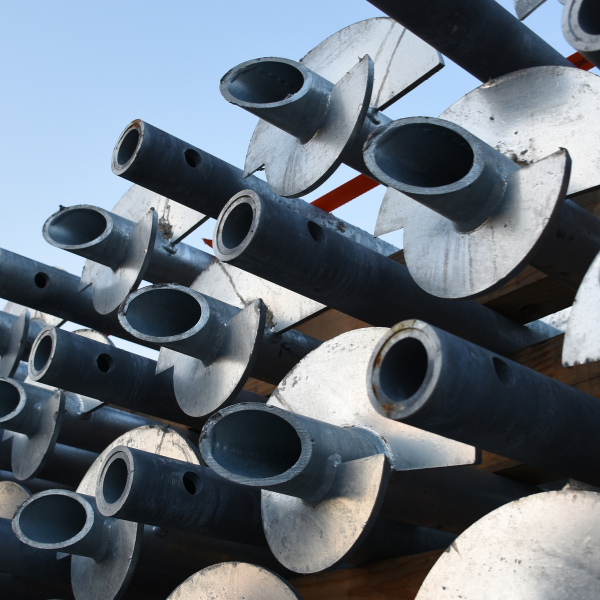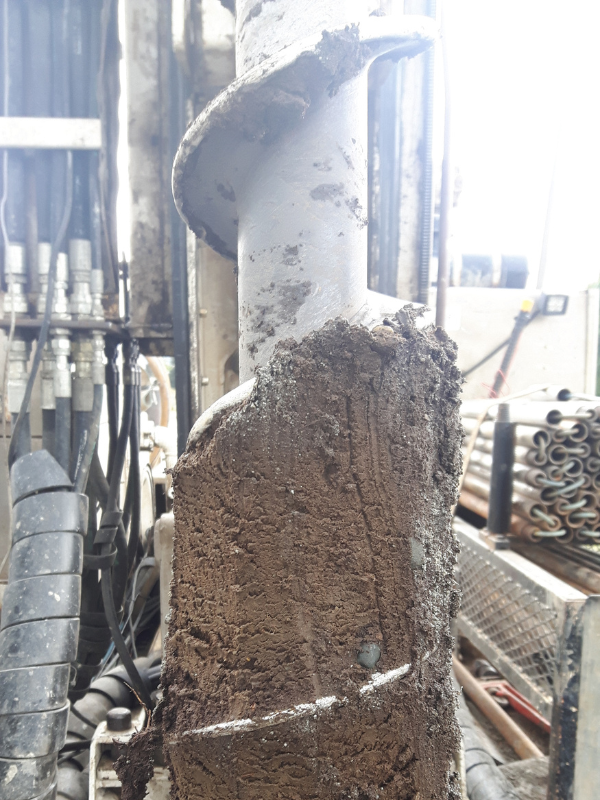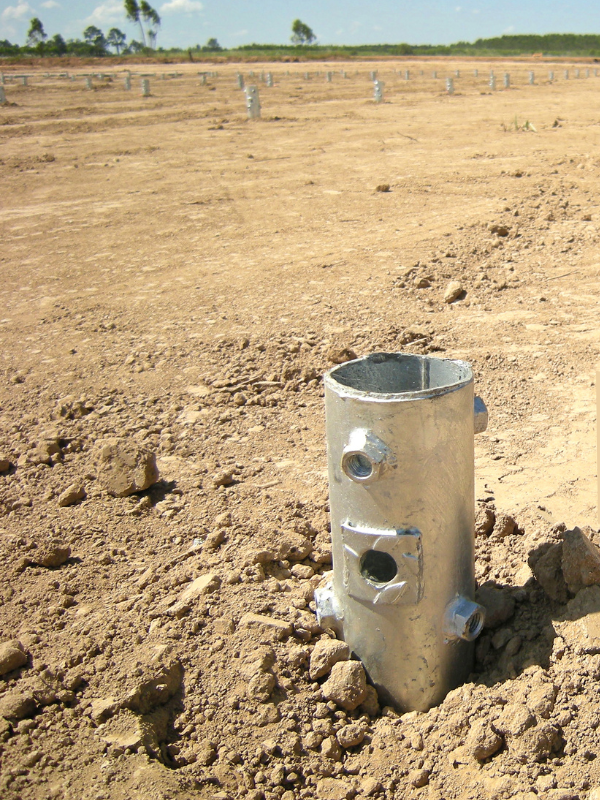Helical screw piles, also known as screw piles or helical piles, are a deep foundation system used for structural support in various construction applications.
They are typically used to support structures in areas with weak or unstable soil. These piles are long steel shafts with helical (spiral-shaped) plates welded to them, allowing them to be “screwed” into the ground like a giant bolt.
They consist of steel shafts with helical flights (or helices) that are strategically placed along the shaft to help the pile penetrate the ground efficiently.
Unlike traditional piling methods, helical piles do not require extensive excavation or concrete. Instead, they are screwed into the ground, reducing disruption and making them an excellent choice for projects where minimal environmental impact and fast installation are priorities.
Instead of being hammered or drilled into the soil like traditional sheet or concrete piles, helical screw piles are rotated into the ground using a hydraulic torque motor attached to an excavator or piling rig. The helical plates help pull the pile downward while providing stability and load-bearing capacity.
Helical screw piles can support both axial loads (up to X) and uplift loads (up to Z), depending on soil conditions. Lateral loads of up to Y can be resisted, with higher capacities achievable by incorporating a concrete collar.

Helical screw piling is a versatile solution used in a variety of sectors, including construction, infrastructure, renewable energy, and industrial applications.
Underpinning existing buildings, supporting new-build foundations, modular and temporary structures
Bridge abutments & columns, rail signalling and platform supports, overhead line equipment foundations
Road signs and gantries, walkways and pedestrian bridges
Wind turbine bases, solar farm structures
Telecommunication masts, electrical pylons & poles, flood defences & retaining walls

Helical screw piles are an effective solution for foundation repairs, particularly when a building’s foundation has settled or shifted due to weak soil, erosion, or water damage. These piles help stabilise and lift the foundation by transferring the structure’s weight to deeper, more stable soil layers.
Helical pile foundations are increasingly popular in projects where speed, environmental impact, and cost-efficiency are key factors. Compared to traditional deep foundations, they offer a low-carbon footprint and a high degree of flexibility.
Whether you need temporary or permanent support, helical screw piles provide long-lasting stability with minimal maintenance.
Helical screw piles offer several benefits over traditional deep foundation methods:
✔ Fast Installation
✔ Minimal Ground Disturbance
✔ No Spoil Removal
✔ All-Weather Installation
✔ No Vibration or Noise
✔ Eco-Friendly & Reusable
✔ Immediate Load Capacity
Looking for a fast, reliable, and eco-friendly foundation solution? Contact our team today for expert advice.
Our helical piling systems provide strong, long-lasting support for permanent structures, temporary applications, and remote sites. With 90+ five-star reviews across Ultimate Structural Calculations and Ultimate Screw Piling, we’re known for delivering quality results.
At Ultimate Screw Piling, we provide expert helical piling solutions across the UK, including:
Our team has extensive experience in delivering high-performance foundation solutions tailored to site-specific ground conditions.

The depth varies based on soil conditions and load requirements, but piles typically range from 3m to 20m in depth.
Yes, they can be unscrewed and removed, making them an excellent option for temporary structures or foundations.
Helical screw piles can support axial loads up to X and uplift loads up to X, depending on soil conditions.
Helical piles are faster, cleaner, and more sustainable than traditional concrete foundations. They are particularly advantageous in sites with poor soil conditions, limited access, or environmental constraints.
Yes, helical piles work well in a variety of soil types, including clay, sand, peat, and loose fill. A geotechnical assessment is recommended to determine the best design.
Our team of experts will be happy to help you with any questions you may have, and to provide you with a free, no-obligation quote for your project.
